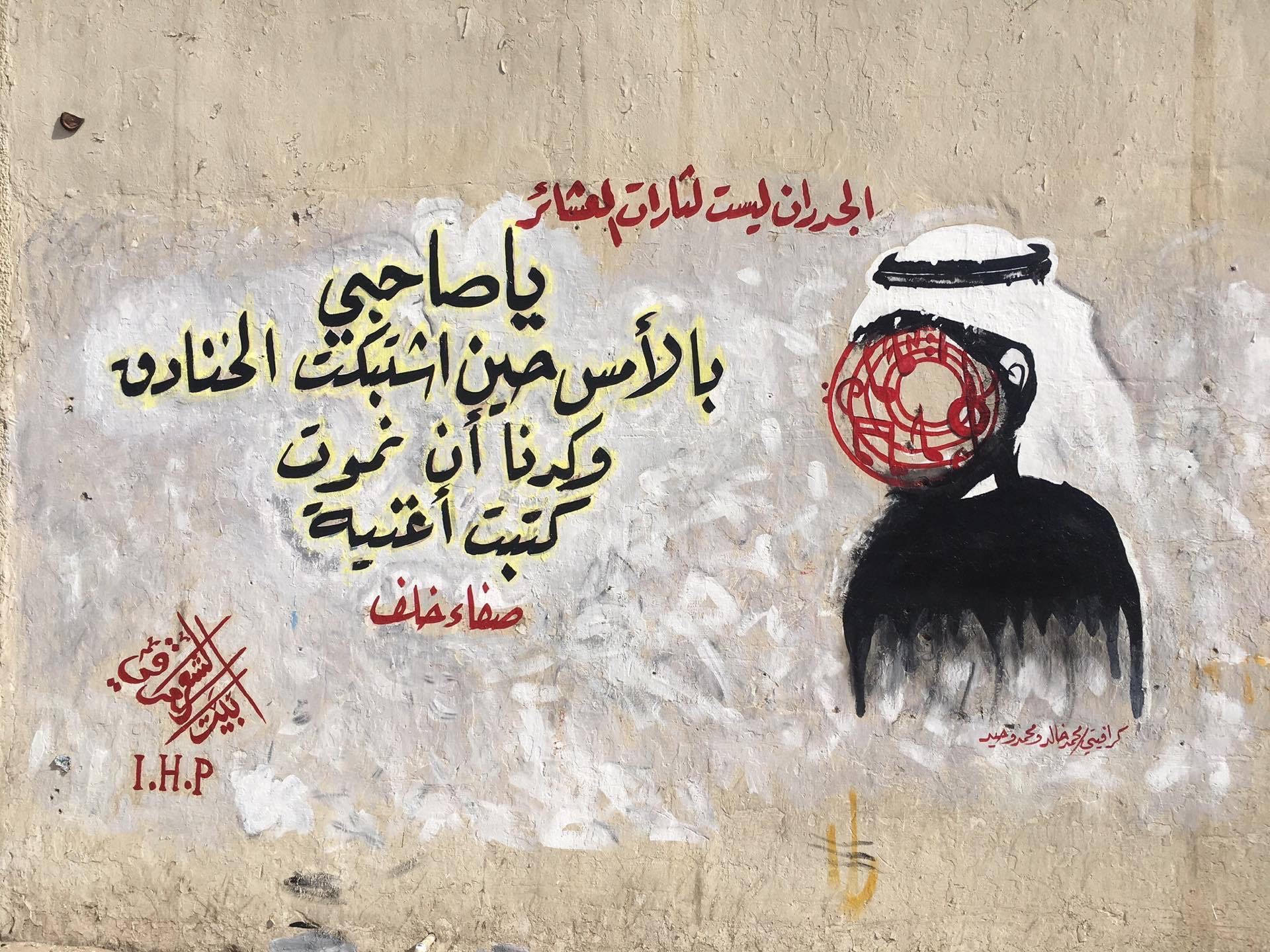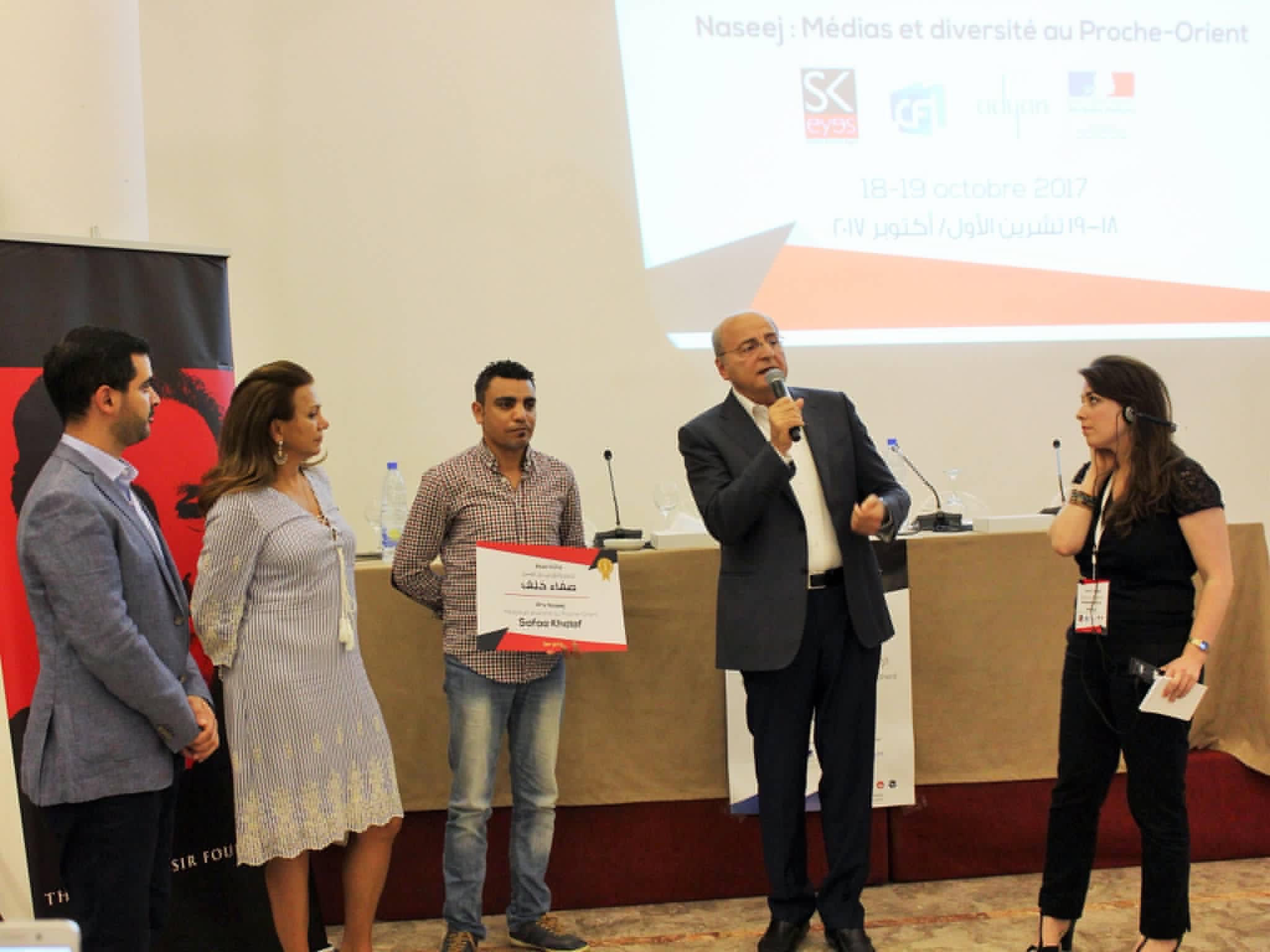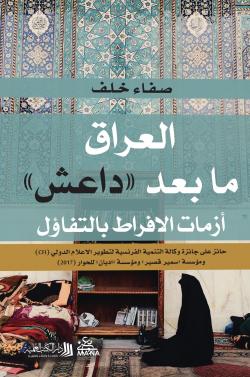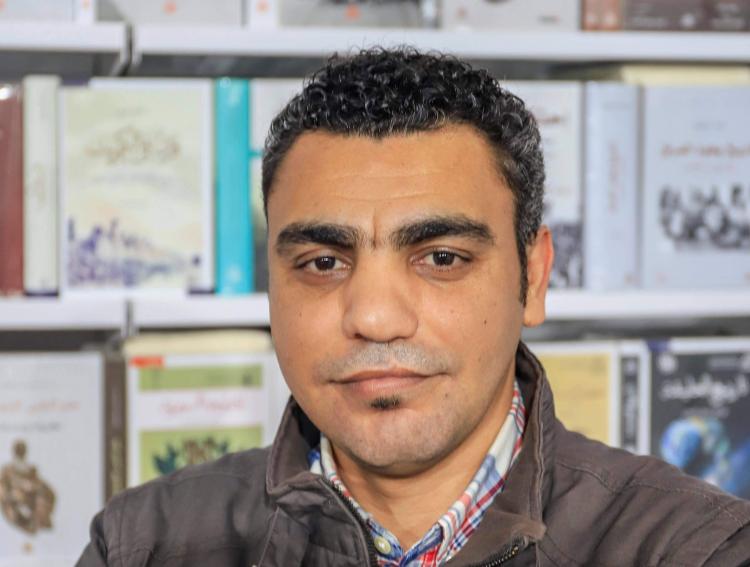Investigative journalist Safaa Khalaf welcomed in Stavanger
- It is very difficult for me to feel free, you know, I constantly look over my shoulder.
Safaa Khalaf said a month after arriving in Stavanger.
Safaa Khalaf is an award-winning freelance journalist and researcher. A political analyst, Khalaf is known for his ability to tackle sensitive political and social issues in Iraq and the Middle East that require thorough and in-depth knowledge and research. His independent, critical writings have brought him in clinch with authorities and different militias, who in various ways have made efforts to silence him.
- It means a lot to us at Sølvberget Cultural Centre and to the City of Stavanger to have the writers in the ICORN programme among us. It is a constant reminder of how dangerous the world has become for many writers and journalists and that we should never take our right to express ourselves freely for granted – in this country, in this city or in our work place. We look forward to getting to know Safaa Khalaf and to work alongside him, says Anne Torill Stensberg, Head of Stavanger Library and Culture Centre.
As a reporter and editor, Khalaf has held positions with several Iraqi, pan-Arabic and international media and news agencies, such as Al Arabiya, Al Hurra and the Washington Post. He re-established and operated the official Iraqi News Agency in April 2015, which was shut down in 2003 due to the American invasion. He also established, with other journalists, the first Iraqi website for investigative journalism, al aalem aljaded, in 2013. It is now published in three main sites in Arabic, English, French and other languages, in Al-Safeer Al-Arabi, Jadaliyya and Orientxxi.
Khalaf holds a bachelor’s degree in historical studies from the University of Basra, studies in social sciences from Beirut, and training courses in investigative journalism with, among others, the BBC, CFI - Samir Kassir Foundation-Beirut, and France Médias Monde. Khalaf is currently co-principal investigator in a research project on Iraq in a conflict-research programme at the London School of Economics (LSE)
A battlground for competing forces
With one of the worlds largest oil reserves and a historically and culturally diverse society, Iraq is in many respects a very rich country. Years of conflict, occupation and sanctions has however taken a huge toll on the country and its people.
Khalaf's most recent book was published in Baghdad 2019, titled Iraq after ISIS: Crises of Over-Optimism. Here he discusses recent and historically ongoing political and social disruptions in Iraq and its consequences on its people and society. He discusses the political crisis and corruption of power; the crisis of national identity; the rise of Iranian Shiite militias; the destruction of the city of Mosul and the crisis of secession of the Kurdistan region; the outbreak of violent protests against the ruling regime; the history of contempt for women by clerics; the crisis of drought in Iraq due to interventions by Turkey and Iran and the conflict over trade routes between the United States and Iran.
Khalaf is currently working on two new books. One on the role of hate and violence in shaping Iraqi culture for the last 100 years. The second book takes on the era of the British occupation of his hometown Basra 2003-2009.

As a poet, Khalaf has published a collection of poetry, The Blonde Negro. His poetry is represented in several anthologies such as Water Forest - Poets of Basra in 100 years, Rhythm of the South: The Poetical Scene in Basra (2016), The South Invents the Rain, and Surviving Dreams, an anthology of a group of new poets in Iraq after the year 2003 (2018). Tattoos of the Seagull, on the Iraqi-Danish novelist Hamid al-Uqabi (2019). EKSIL: Arab-Danish anthology (2019). He is at present preparing to publish a new poetry collection.
Khalaf has published research articles in literary criticism and psychology of prose. In 2010, he founded the intellectual, cultural and poetic "Nathr" magazine, as the first Iraqi magazine freed from ideological and religious restrictions. After publishing only 3 issues it was banned by a decision of the Iraqi government in 2011.
Independent journalism is a dangerous profession in Iraq
Journalists in Iraq experience constant intimidation and threats due to the authorities and militias’ attempts to control information. By insisting on maintaining critical, independent reporting to inform the citizens of Iraq and the international community, Khalaf and many of his colleagues have been subject to persecution and harassment in both Iraq and Lebanon. He has subsequently had to live a life in hiding and exile for the past years.
- There is no independent press in Iraq, says Khalaf. All the media agencies are owned by either the ruling regime or the militias, which also own parties and weapons. A journalist cannot work under appropriate conditions while at the same time attempted murdered. More than 500 journalists have been killed in Iraq since 2003. Only this past year, about 20 of them have been killed on the job. These figures indicate that Iraq is an insecure country, and its citizens do not have freedom.
Safaa Khalaf looks forward to continuing his research and writing for Arab and international media outlets from his new safe base in Stavanger.
- Feeling safe here in Stavanger, I will focus on analysing crises in Iraq and the Middle East, politically, economically and socially, and continue to write investigative reports on thorny and complex issues. I will launch campaigns for human rights and for limiting militia activity in Iraq, investigate cases of kidnapping and killing of activists and opponents and defend the environment and the right to obtain water fairly, especially in Iraq, says Khalaf.
Read Khalaf's article The future of Mosul, a city stripped of its diversity

Latest news
-
23.04.24
-
18.04.24
-
04.04.24
-
26.03.24
-
21.03.24








